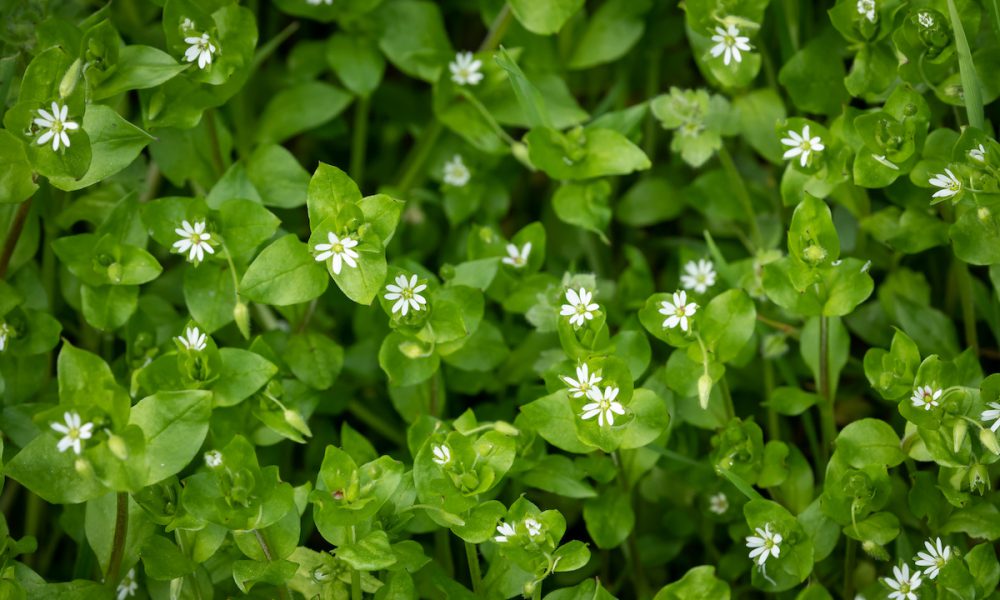
At Houseman Services, we know all about lawn care. Nothing gets in the way of a beautiful lawn more than weeds coughing out the grass. In Georgia, there are hundreds of difference species of weeds. This series is dedicated to educating you about the most common weed types in Georgia.
Each week, we will cover these different weeds:
- Bluegrass
- Chickweed
- Clover
- Crabgrass
- Creeping Charlie
- Dandelion
- Dollarweeds
- Nutsedge
- Crabgrass
- Creeping Charlie
- Dandelion
- Dollarweeds
- Nutsedge
Chickweeds
Common (Stellaria media) and sticky (Cerastium glomeratum) and the two species of chickweed, which grow easily in gardens, agricultural areas, and low-maintenance lawns. Mouseear chickweed (Cerastium fontanum ssp. vulgare) is a perennial also found in lawns.
Growth pattern
When growing without competition from other plants, common chickweed can produce approximately 800 seeds and it takes 7 to 8 years to eradicate. Chickweed thrives in moist, cool areas so it often gets started before spring crops can become competitive and can limit vegetable harvest.
Fortunately, annual chickweed is easier to control as long as you control before it flowers. This can be difficult due to the short period between germination and flower production so you need to keep an eye out for this weed. Both types have shallow roots, so they can often be removed by hoeing or hand-pulling if done early. If the soil is dry and plants are small, it is most effective?
It is important to remove the entire plant when using either method because new plants can grow from broken pieces of mouse-ear rootstock. Make sure you avoid herbicides in your vegetable garden.
You can reduce the amount of weed seeds germinating by limiting light and using an organic mulch such as wood chips, at least two inches deep, which will serve as a physical barrier. Synthetic mulches such as landscape fabrics may also be used. In landscaped areas, they should be covered with an additional layer of mulch (rock or bark).
You also can utilize black plastic, both as mulch into which seeds or transplants are placed and also between rows into a vegetable garden.
A healthy lawn can compete against mouse-ear chickweed if the grass is not mowed too short or too frequently. To compete against chickweed, water your lawn deeply and infrequently which will encourage the grass to grow deeper roots. It is recommended to water your lawn once every seven to ten days. Apply enough water so that it soaks six to eight inches into the ground.
Chickweed is also edible. When young, the leaves, stems, and flowers can all be eaten either raw or cooked, where it adds a delicate spinach-like taste to any dish.
Contact Houseman Services at 866-964-PEST as soon as possible so we can treat your property?
Houseman Services is the only complete service company in the Athens, GA area. We provide Weed control, fertilization, shrub care, mulch & pine straw, sod, annual plantings, irrigation, and commercial & residential lawn maintenance. We are also state certified and licensed in wood destroying organisms (termite control), household pest control, public health, and turf & ornamental weed control. We are licensed to control and treat mosquitoes, termites, all pest problems, and turf & ornamental weed control. Contact the professionals at Houseman Services and set up a free inspection of your yard. We have been servicing homes and businesses in the Athens, Clarke County area since 1985!